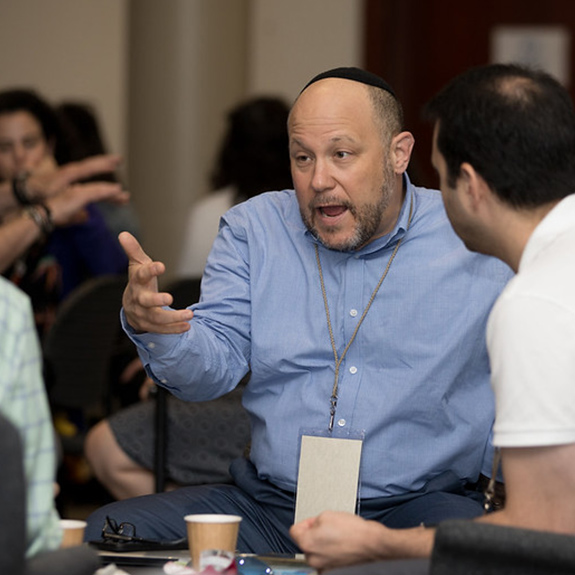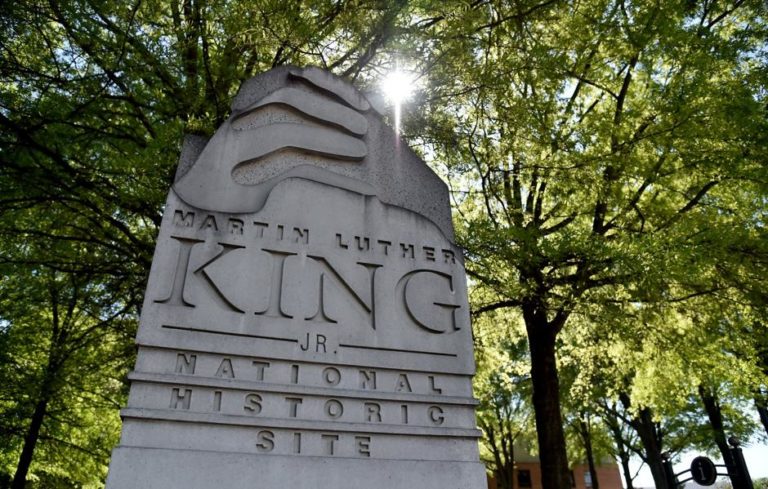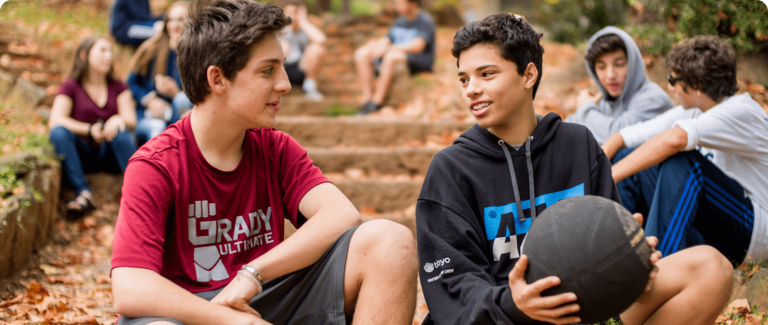
Jumpspark is proud to welcome 30 female-identifying Jewish teens in grades 9-12 representing 13 high schools and 9 synagogues in metro Atlanta to the inaugural cohort of the Strong Women Fellowship. The Strong Women: Know Them, Be Them Fellowship is a glass-ceiling shattering, educational cohort providing female-identifying Jewish teens in Atlanta with unparalleled access to strong women leaders, thinkers and voices shaping the world we live in today. Each month fellows will meet speakers, tour Atlanta organizations, and engage in relevant and empowering learning that speaks to what it means to be a woman in 2018, helps young women grapple with the obstacles they face, and prepares them to be the leaders they can be today and in the future.
Monthly guests include local female Jewish professionals and rabbis, as well as national female leaders. On October 23rd, Rachel Alterman Wallack, MSW, Founder and Mission Director of VOX ATL, will facilitate the orientation and initial meeting of the cohort. In November, in partnership with the Book Festival at the MJCCA, fellows will meet female Jewish authors Allison Yarrow and Emma Gray to learn how they authentically share their stories. In January, in partnership with SOJOURN, the cohort will explore identity, gender, and sexual diversity with Dr. Joy Ladin, professor at Stern College of Yeshiva University and nationally recognized speaker on transgender issues. For the full itinerary, visit jumpsparkatl.org/program/strong-women-fellowship.
Applicants for the fellowship were asked to answer four essay questions: “Who is a Strong Woman you consider a role model and why?”, “What do you think is one of the main issues facing women today?”, What do you hope to gain by participating in this fellowship?”, and “What will you bring to this learning cohort requiring active participation and input from all members?”. The thoughtful answers submitted by the 30 young women that were accepted demonstrate intelligence and unique perspectives of various backgrounds, regions, and affiliations, representing the diverse Atlanta Jewish community.
The 2019 cohort members include:
- Mya Artzi, North Springs Charter High School, Class of 2020
- Lula Barracano, Decatur High School, Class of 2022
- Téa Barton, Riverwood International Charter School, Class of 2021
- Meredith Berger, Pope High School, Class of 2019
- Emma Cohen, Woodward Academy, Class of 2022
- Lauren Cohn, Riverwood International Charter School, Class of 2021
- Rachel Cohn, Riverwood International Charter School, Class of 2021
- Samantha Fitch, Woodward Academy, Class of 2020
- Aiden Fladell, Riverwood International Charter School, Class of 2022
- Sydney Fox, Riverwood International Charter School, Class of 2019
- Marissa Goodman, Pace Academy, Class of 2022
- Tamar Guggenheim, Riverwood International Charter School, Class of 2022
- Katie Hurwitz, Johns Creek High School, Class of 2021
- Rebecca Kann, Pace Academy, Class of 2022
- Maya Laufer, Dunwoody High School, Class of 2022
- Stella Mackler, Grady High School, Class of 2022
- Macy Mannheimer, Milton High School, Class of 2021
- Emma Nowitz, North Springs Charter High School, Class of 2022
- Moira Poh, North Springs Charter High School, Class of 2022
- Lilah Presser, The Weber School, Class of 2021
- Ariel Raggs, Chamblee Charter High School, Class of 2021
- Lulu Rosenberg, North Springs Charter High School, Class of 2022
- Zoe Rosenberg, North Springs Charter High School, Class of 2020
- Zoe Siegel, Riverwood International Charter School, Class of 2022
- Lexi Silberman, Dunwoody High School, Class of 2020
- Lili Stadler, The Weber School, Class of 2021
- Lily Stoumen, Riverwood International Charter School, Class of 2021
- Abigail Ventimiglia, North Gwinnett High School, Class of 2020
- Rene Walter, Dunwoody High School, Class of 2021
- Anna Wynne, Pope High School, Class of 2020
The Strong Women Fellowship aims to connect female-identifying Jewish teens with a local cohort community that values justice, equality, and girl power while equipping them with valuable leadership skills and resumé-building experience. The fellowship receives local support as an innovation initiative of the Jewish Federation of Greater Atlanta, with additional grant funding for the fellowship from the Jewish Women’s Fund of Atlanta, and national funding from the Jim Joseph Foundation.
JumpSpark, Atlanta’s initiative for Jewish teen engagement, connects teens through immersive, interest-based experiences inspired by a Jewish lens. JumpSpark invests in teens and their ecosystem through resumé-building programs and social events, the “Navigating Parenthood” workshop series for parents of teens, JumpSpark Professional development and networking for youth educators, and community partnerships to boost collaboration and innovation. JumpSpark, one of ten communities in the Jewish Teen Education & Engagement Funder Collaborative, receives local support as an innovation initiative of the Jewish Federation of Greater Atlanta and national funding from the Jim Joseph Foundation.
To learn more about JumpSpark visit jumpsparkatl.org.






 For example, at JumpSpark’s week-long marketing internship with
For example, at JumpSpark’s week-long marketing internship with 

 The Atlanta Jewish Teen Initiative, known as
The Atlanta Jewish Teen Initiative, known as  Tatum Gordon, who attends Mill Springs Academy, said, “Touring MBS was my favorite part, and learning the mechanics of how the roof works. We had a scavenger hunt at the College Football Hall of Fame, searching for characteristics of a hero. You don’t need to have superpowers to show compassion or be a hero.” Josh Silverman, who attends St. Francis High School said, “It was good to learn about entrepreneurs that were very successful and that dealt with hardships and still became successful. The entrepreneurs gave back to their community by setting up businesses in Israel.”
Tatum Gordon, who attends Mill Springs Academy, said, “Touring MBS was my favorite part, and learning the mechanics of how the roof works. We had a scavenger hunt at the College Football Hall of Fame, searching for characteristics of a hero. You don’t need to have superpowers to show compassion or be a hero.” Josh Silverman, who attends St. Francis High School said, “It was good to learn about entrepreneurs that were very successful and that dealt with hardships and still became successful. The entrepreneurs gave back to their community by setting up businesses in Israel.” 





 Our teens are looking for on-ramps for conversations with adults in a safe
Our teens are looking for on-ramps for conversations with adults in a safe

